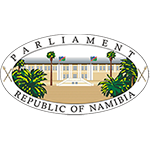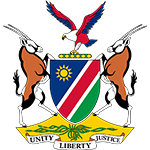Parliament
The Parliament of the Republic of Namibia is one of the three organs of the State, which are the Executive (Cabinet), the Legislature (Parliament) and the Judiciary (the Courts). Involve yourself in the law making process and make Parliament a truly representative of the Namibian people.
Key result area 1
 Capacity development programme for CSOs, their networks as well as for Parliament. 10 training sessions each for both actors
Capacity development programme for CSOs, their networks as well as for Parliament. 10 training sessions each for both actors
 Parliamentary outreach guidebook for Namibia’s constituencies
Parliamentary outreach guidebook for Namibia’s constituencies
 Online bill tracking system for Parliament’s website
Online bill tracking system for Parliament’s website
 Training on how to use the National development budget plus a simplified budget for voices 10 and 17
Training on how to use the National development budget plus a simplified budget for voices 10 and 17
 Three interface meetings with Parliament and Civil Society
Three interface meetings with Parliament and Civil Society
Parliament - In A Democratic Society
Parliament is a neutral place where MPs meet to talk, discuss and consult frankly with each other on political, social, economic and legal implications on society. It is the place where a nation speaks about its policies and laws through its elected representatives and where the aspirations of the people are turned into laws.
Parliament consists of elected representatives called Members of Parliament (MPs) responsible for making and changing the laws of the country. It Consists of two Houses, namely National Assembly and National Council.
Role of Parliament in a democracy
• Legislation – making laws. Article 44 - Legislative Power - The legislative power of Namibia shall be vested in the National Assembly with the power to pass laws with the assent of the President as provided in this Constitution subject, where applicable, to the powers and functions of the National Council as set out in this Constitution
• Budget – approve government spending – Debate appropriation bill presented by Executive
• Oversight – hold the executive accountable. Article 59 (3) “…any committee of the National Assembly established in terms of sub-article (1) shall have the power to subpoena persons to appear before it to give evidence on oath and to produce documents required by it.”
• Representation – represent the interest of the electorate - Article 45 -Representative Nature - The members of the National Assembly shall be representative of all the people and shall in the performance of their duties be guided by the objectives of this Constitution, by the public interest and by their conscience.
Enhancing Participatory Democracy
EU supported programme started in July 2020 - June 2025

To strengthen the collaboration and coordination between CSOs, Government and Parliament in the implementation and oversight of public policies and programmes, particularly but not restricted to the sectors of education and skills and rural development, thereby enhancing participatory democracy in Namibia
Public participation – A constitutional provision
 Article 61 Public Access to Sittings - all meetings of the National Assembly, shall be held in public and members of the public shall have access to such meetings.
Article 61 Public Access to Sittings - all meetings of the National Assembly, shall be held in public and members of the public shall have access to such meetings.
 Access by members of the public in terms of Sub-Article (1) hereof may be denied if the National Assembly adopts a motion supported by two-thirds of all its members excluding such access to members of the public for specified periods or in respect of specified matters.
Access by members of the public in terms of Sub-Article (1) hereof may be denied if the National Assembly adopts a motion supported by two-thirds of all its members excluding such access to members of the public for specified periods or in respect of specified matters.
Useful Links

The Namibian Parliament, in partnership with the EU-funded Enhancing Participatory Democracy in Namibia (EPDN) Programme is seeking to increase public engagement and participation of civil society and the general public in the work of Parliament.
OUR PARTNERS
© Copyright EPDN




